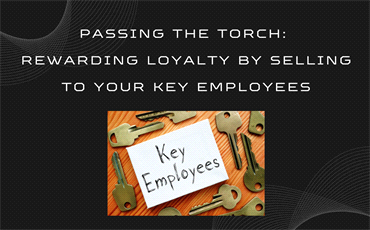How To Determine A Reasonable Price For Your Business
Getting an accurate understanding of the value of your business is a critical step that could help determine your next move
How to Determine a Reasonable Price for Your Business
Thinking of selling your business?
Knowing what your business is worth ahead of time could give you a chance to increase its value and better prepare for the exit.
Note that your business is worth only what someone is willing to pay for it.
Having an inflated price in your head can seriously delay or kill your exit strategy. But, knowing the things buyers consider when determining a reasonable price for a business can help you avoid nasty surprises when you put your business on the market.
Here are six factors to consider when pricing your business. Keep in mind that these are just guidelines, and the best way to get an accurate business valuation is to seek the help of a professional appraiser or intermediary such as a Business Broker.
1. Earning History
Earnings are always a top concern for most buyers.
A great place to start is your business's Earnings Before Interest and Tax (EBIT). Any buyer will want to know this figure to determine your company's earning potential.
Buyers will also be interested in seeing how your business has been performing over the years, not just the current earnings.
Increased growth in revenue and profits over the past few years will affect the valuation positively. Conversely, declining revenue and profit trends could negatively affect the price. Your financial documents, such as balance sheets and P&L statements, can give you valuable insights into your company's financial history.
2. Concentration
Client concentration is a critical factor potential buyers will consider when determining the price to pay for your business. Savvy buyers typically use client concentration to project a business's future sales and performance.
For example, if your business is doing well, but 75% of your monthly sales come from 3 clients, this would negatively impact your business valuation. That's because the loss of one client could cause a significant dip in revenue and profits.
On the other hand, a diverse client base could impact your business valuation positively.
Similarly, product concentration can be a major valuation factor. If you only deal in one product, your business will not sell as high as a company that sells diverse products and appeals to diverse markets.
3. Size of Your Business
The size of your company is another factor to consider when valuing your business.
Buyers assume larger companies have fewer risks compared to smaller companies. For instance, a company that has managed to achieve $5 million or more in gross revenue while maintaining a benchmark is viewed as a better opportunity than a company of lesser size.
Plus, having more employees and revenue may be seen as a sign of stability. The buyer may interpret that the business has survived economic downturns and possesses the people and technology needed to maintain growth.
4. Growth Prospects
It's common for buyers and investors to project a company's future growth based on current and historical data. Your company's growth potential will depend on the current health of your business and the industry as a whole.
There are some business models with higher growth potential than others, which could increase the value of the business. But if you deal in industries that may soon become obsolete due to technological advances, don't expect the price to be competitive.
5. Market Demand
If what you do is high in demand, your business will fetch a high price.
Conversely, if your products or services are not selling, and you find yourself igniting price wars to win customers, you need to lower expectations if you hope to sell your business.
The industry in which a company operates will also be important in determining the valuation. If a company operates in a "hot industry," like Artificial Intelligence, it will definitely achieve a higher valuation than a company in a less-demanding industry.
6. Other "Intangibles" in the Business
The value of your business will also be affected by other "intangible" factors that are difficult to quantify. This may include:
- Location – is it located favorably?
- Competitiveness – is it favorably placed against competitors?
- Brand image – What is the business reputation in the market?
- Trademarks – Does it have intellectual property of great value?
- Workforce – Is the management team and employees strong?
- Automation – Does the company still rely on manual processes?
- Marketing – How marketable is the business
You'll also want to consider the cost of capital since it has a direct correlation to the ROI buyers can achieve. Potential buyers consider paying less if capital is difficult to secure.
Summing Up
If you're considering selling your business, getting an accurate understanding of the value of your business is a critical step that could help determine your next move.
By taking these factors into account, you'll get a rough estimate of what potential clients will be willing to pay for your business.
Request Valuation
We will get back to you as soon as possible.
Please try again later.
Recent articles for you
Larry Goldstein of First Choice Business Brokers
License: NV RE S.0188852
Permit: Business Broker Permit BUSB.0007059
Navigation Links
Want to receive new business listing alerts by email?
The World's Authority in Business Sales
© 2023 Larry Goldstein of First Choice Business Brokers | Each office is independently owned and operated. Privacy Policy






